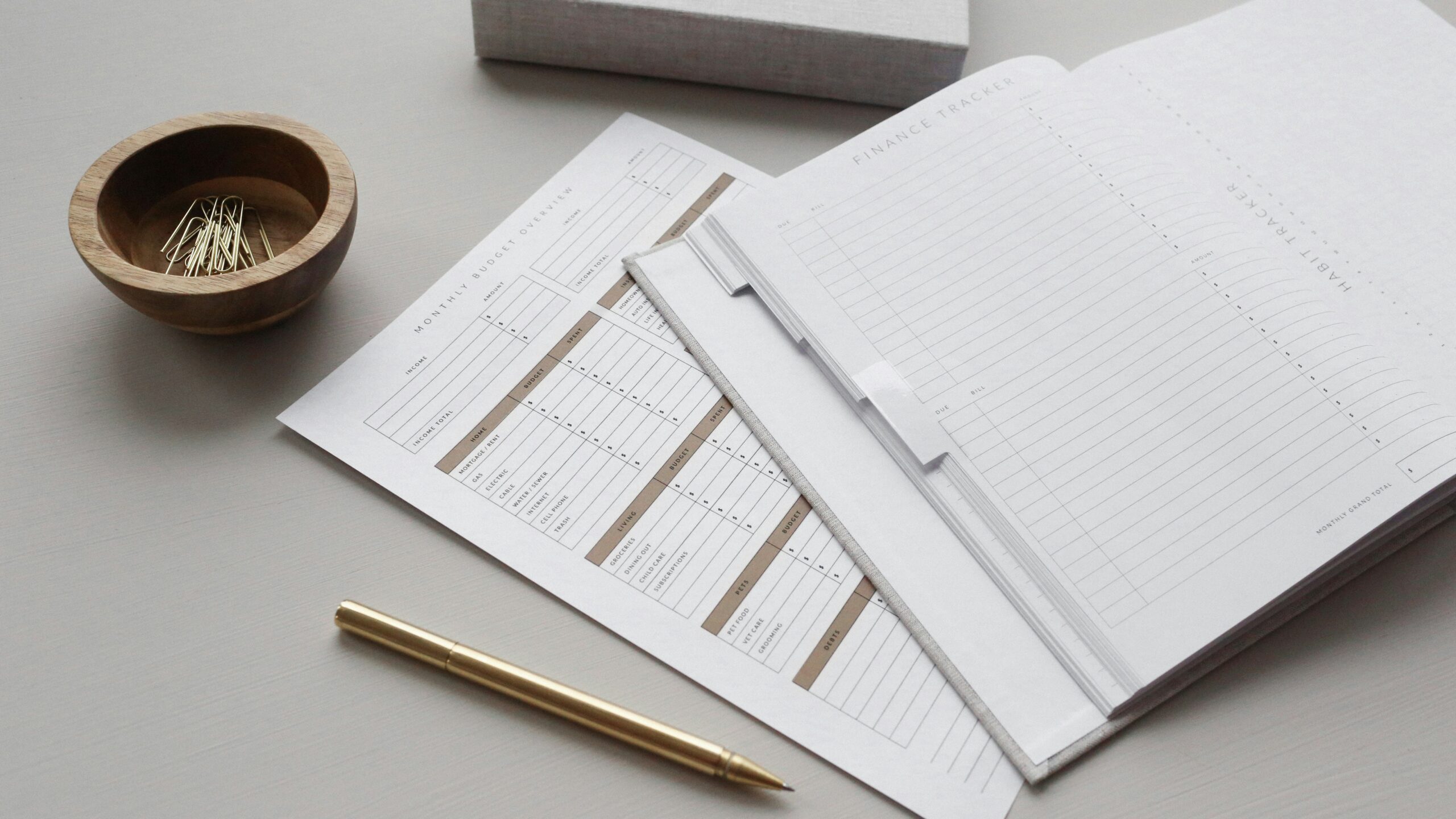A solid budget is one of the most powerful tools for achieving financial stability, yet many people unknowingly make mistakes that sabotage their progress. From overlooking key expenses to skipping the budgeting process altogether, these missteps can lead to stress, debt, and missed opportunities. Today, we’ll break down the 5 most common budgeting mistakes, and how to avoid/fix them, so you can take control of your money and reach your goals faster.
Budgeting Mistake #1: You Don’t Budget
A budget is simply your roadmap for where your money should go each month, helping you prioritize essentials, plan for savings, and still enjoy spending without guilt. Without one, you’re essentially guessing where your money goes, and that usually leads to overspending, missed goals, and financial stress. Even a simple, flexible budget can make a huge difference in reaching your short, and long-term financial objectives.
How to Fix:
Start small by creating a basic budget that lists your income, fixed expenses, variable expenses, and savings goals. Use a simple spreadsheet or a budgeting app like Mint or YNAB to make tracking easier. Set realistic spending limits, so your budget feels achievable, not restrictive. Review it monthly and adjust as needed, consistency matters more than perfection.
Still not sure how to start? Check out our beginner-friendly guide: What Is a Budget? Understanding Budgeting, to get your financial foundation right. Here’s a quick article on Monthly Budgeting Made Easy: Step-by-Step Guide
Budgeting Mistake #2: You Give Up Too Soon
Many people start budgeting with enthusiasm, only to abandon it after a few weeks when it feels restrictive, or they slip up. The truth is, budgeting is a skill that takes time to refine, and occasional mistakes are part of the process. Just like with fitness or learning a new hobby, consistency is more important than perfection. Instead of quitting, adjust your budget to be more realistic, and give yourself grace as you learn to manage your money better.
How to Fix:
Treat budgeting like building a habit, start with a simple plan and give yourself time to adapt. If your budget feels too tight, adjust it rather than abandoning it. Set small, achievable goals and celebrate progress along the way. Remember, the goal is long-term improvement, not perfection from day one.
Budgeting Mistake #3: You Don’t Plan for Emergencies
Life is full of surprises, car repairs, medical bills, sudden job changes, and without an emergency fund, these moments can quickly derail your finances. Many people make the mistake of allocating every dollar to bills and spending, leaving nothing set aside for the unexpected. Building even a small emergency fund provides a financial safety net, reducing stress and preventing you from going into debt when life throws you a curveball.
How to Fix:
Start by setting aside a small, manageable amount each month, even $20–$50 can build momentum. Keep this money in a separate, easily accessible savings account so you’re not tempted to spend it. Aim for at least three to six months’ worth of essential expenses over time. Treat your emergency fund as untouchable unless it’s truly for an urgent, unavoidable need.
Prioritize your savings effortlessly, read Pay Yourself First: What Is Reverse Budgeting & How to Do It to see how this method helps you grow your nest egg before expenses arrive.
Budgeting Mistake #4: Neglecting to Invest in Your Future
A budget isn’t just about covering today’s expenses, it’s also about preparing for tomorrow. Many people focus solely on short-term needs and wants, forgetting to allocate money toward long-term growth through investments. Whether it’s a retirement account, index funds, or other assets, investing allows your money to work for you over time. Ignoring this step can mean missing out on years of compound growth, making it harder to achieve financial independence later in life.
How to Fix:
Include a line in your budget specifically for long-term investments, even if it’s a small amount to start. Contribute regularly to retirement accounts like a 401(k) or IRA, or consider low-cost index funds for steady growth. Automate contributions so investing becomes a habit, and increase the amount as your income grows. The earlier you start, the more time your money has to compound and work in your favor.
If you’re looking for a straightforward way to organize your spending, don’t miss Budgeting Basics: What Is the 50/30/20 Budget Rule?
Budgeting Mistake #5: Skipping Expense Tracking
Even the best budget won’t work if you don’t know where your money is actually going. Skipping expense tracking often leads to overspending, forgotten subscriptions, and the slow creep of small purchases that add up over time. By monitoring your spending, whether through an app, spreadsheet, or even pen and paper, you can spot patterns, adjust your budget, and stay in control. Awareness is the first step toward making smarter financial choices.
How to Fix:
Choose a tracking method that fits your lifestyle, budgeting apps, a simple spreadsheet, or a physical notebook. Record every expense, no matter how small, to get a complete picture of your spending habits. Review your transactions weekly to catch overspending early and identify areas where you can cut back. Consistent tracking keeps your budget grounded in reality.

